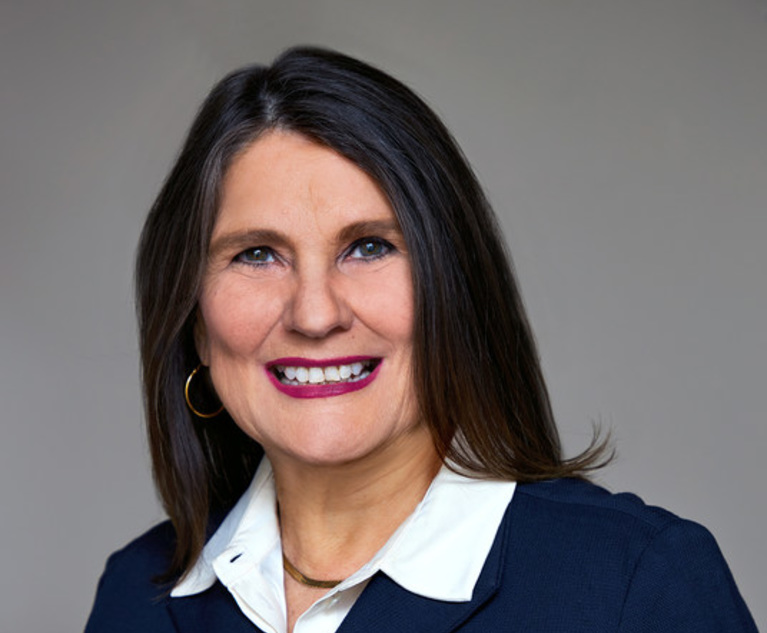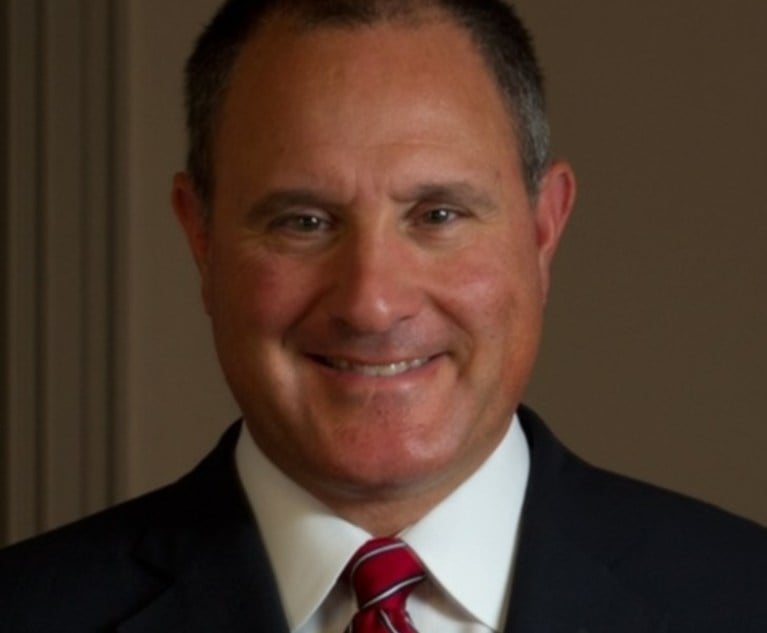Candidate: Dawn Getty Sutphin
Court: Delaware County Court of Common Pleas
Party: Republican
The following has been edited lightly for style.
The Legal Intelligencer: How would you describe your judicial philosophy?
Dawn Getty Sutphin: My judicial philosophy is common sense application of judicial restraint without personal or political preference. I will work hard to maintain the integrity of, and public confidence in, the judicial system, by administering non-partisan justice, applying the law as it is written regardless of my personal views, and treating everyone with dignity and respect.
The Legal: What makes you the best candidate for the role?
Sutphin: I am the best candidate for Common Pleas Judge in Delaware County based on my 30+ years of experience as a practicing attorney, which includes almost 10 years as an assistant public defender, and as a professor of constitutional law and criminal procedure as well as ethics in the criminal justice system. I am the only candidate for this role who has litigated in Delaware County district courts, the juvenile court, and in the court of common pleas, and am the only candidate that has practiced law for more than 10 years.
The Legal: What is the greatest threat to the practice of law or problem the profession faces?
Sutphin: The greatest threat to the practice of law is the lack of respect for the law, litigants and the pursuit of justice. This threat has been increased by the current efforts to politicize the judicial system here in Delaware County.
The Legal: What does your party membership say about you and your legal outlook?
Sutphin: My party membership says nothing about me and my legal outlook because I am committed to a commonsense application of the law without regard to personal or political preference. My legal outlook is my commitment to apply the law without prejudice of any kind.
The Legal: Do you think courts in Pennsylvania have a perception problem when it comes to appearing partisan or polarized? If so, what would you do to combat this?
Sutphin: In the past 30+ years, I have practiced law in Philadelphia and Delaware counties and in both federal and state courts, and I have never personally perceived judges in any of these court systems to base their decisions on partisan politics. Given the current political climate and the extreme views on all sides, however, I believe the courts are being politicized by parties, candidates, and the press. Movement in this direction threatens the integrity of, and public confidence in, our judicial system, particularly when political parties make party affiliation the key factor in evaluating judicial candidates, rather than performance and qualifications.
The Legal: Several CLEs and bench-bar panels have recently addressed the growing phenomenon of distrust in the courts. In your view, how has distrust in the judiciary created challenges for the bench, and how should judges respond?
Sutphin: Judges must be held to a high ethical standard and behavior not meeting that standard should be addressed. This is nothing new. The challenge, however, is that concerns regarding distrust in the bench have been elevated over the past several years given the polarization of this country. Judicial candidates and judges are now being evaluated by some based on party affiliation or party endorsement without consideration of their personal performance, credentials, and temperament. Given this reality, judges should respond by writing well-reasoned opinions that support their decisions; allowing the public to understand the process, the law, and the precedent. The law must be applied without prejudice and without regard to personal or political preferences.
The Legal: What factors matter in deciding when recusal is necessary, and would you recuse yourself if a campaign contributor were involved in litigation as a party or attorney before you?
Sutphin: Pertinent factors in deciding whether recusal is necessary include examining the history of both personal and professional relationships as well as whether there is any appearance of impropriety. Protecting the integrity of the bench and public trust in the judiciary should always be a top priority.
The Legal: Who are your role models and mentors?
Sutphin: My role models in the judiciary are Ruth Bader Ginsburg and Antonin Scalia. Both justices were dedicated to their work and committed to justice. Despite their ideological differences, they are hailed for having been great friends who believed their differences made them each better and whose debates on the law were considered spirited but fair. I believe we can all learn from the civility, respect, and decency displayed by these two very different justices.
My earliest mentor was my father who taught me the value of hard work and who has always demonstrated integrity, fairness, and honesty in both personal and professional interactions. Over the years there have also been numerous teachers, professors, superiors, co-workers, friends, and even acquaintances who have mentored me, sometimes unknowingly, by contributing to my continuous growth. Something can be learned from every interaction.
NOT FOR REPRINT
© 2024 ALM Global, LLC, All Rights Reserved. Request academic re-use from www.copyright.com. All other uses, submit a request to [email protected]. For more information visit Asset & Logo Licensing.


 Dawn Sutphin, a candidate for the Delaware County Court of Common Pleas. Courtesy photo
Dawn Sutphin, a candidate for the Delaware County Court of Common Pleas. Courtesy photo








